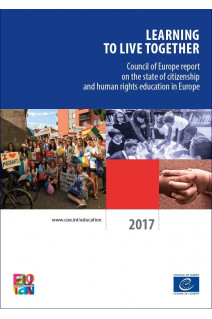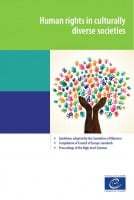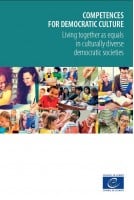Democratic citizenship and human rights education are increasingly important in addressing discrimination, prejudice and intolerance, and thus preventing and combating violent extremism and radicalisation in a sustainable and proactive way. Improving the effectiveness of such education is an imperative for the Council of Europe member states.
The Council of Europe promotes human rights and democracy through education, as a means of building peaceful societies where the human dignity of all people is respected. With the adoption of the Charter on Education for Democratic Citizenship and Human Rights Education in 2010, the member states committed to “the aim of providing every person within their territory with the opportunity of education for democratic citizenship and human rights education”. The state of citizenship and human rights education in Europe is reviewed every five years with member states and civil society with the aim of identifying achievements and challenges and proposing action at European, national and local level. This report covers the second review for the period 2012-2017.
FOREWORD
PART I. OVERVIEW
PART II. DECLARATION, KEY ACTIONS AND EXPECTED OUTCOMES ON EDUCATION FOR DEMOCRATIC CITIZENSHIP AND HUMAN RIGHTS
PART III. KEY MESSAGES
PART IV. REPORT ON THE CONFERENCE “LEARNING TO LIVE TOGETHER”
PART V. ANALYTICAL SUMMARY OF REPLIES TO THE QUESTIONNAIRE FOR GOVERNMENTS
PART VI. CIVIL SOCIETY ORGANISATIONS SURVEY
ACKNOWLEDGEMENTS
Télécharger un extrait (970.71k)






